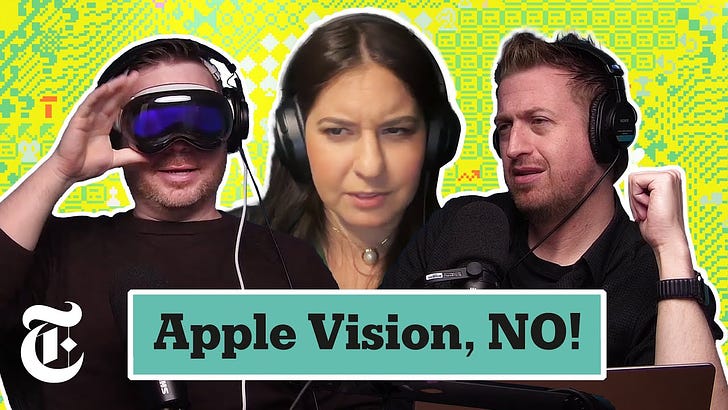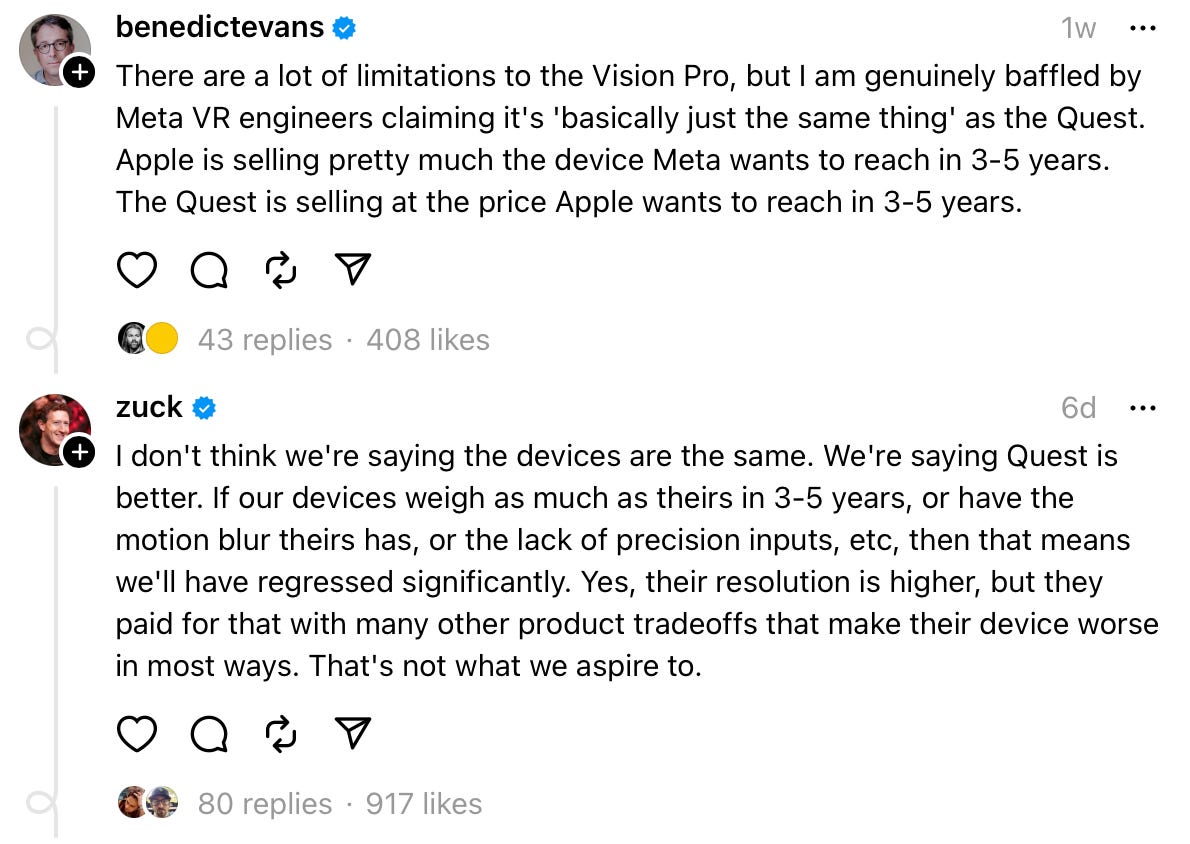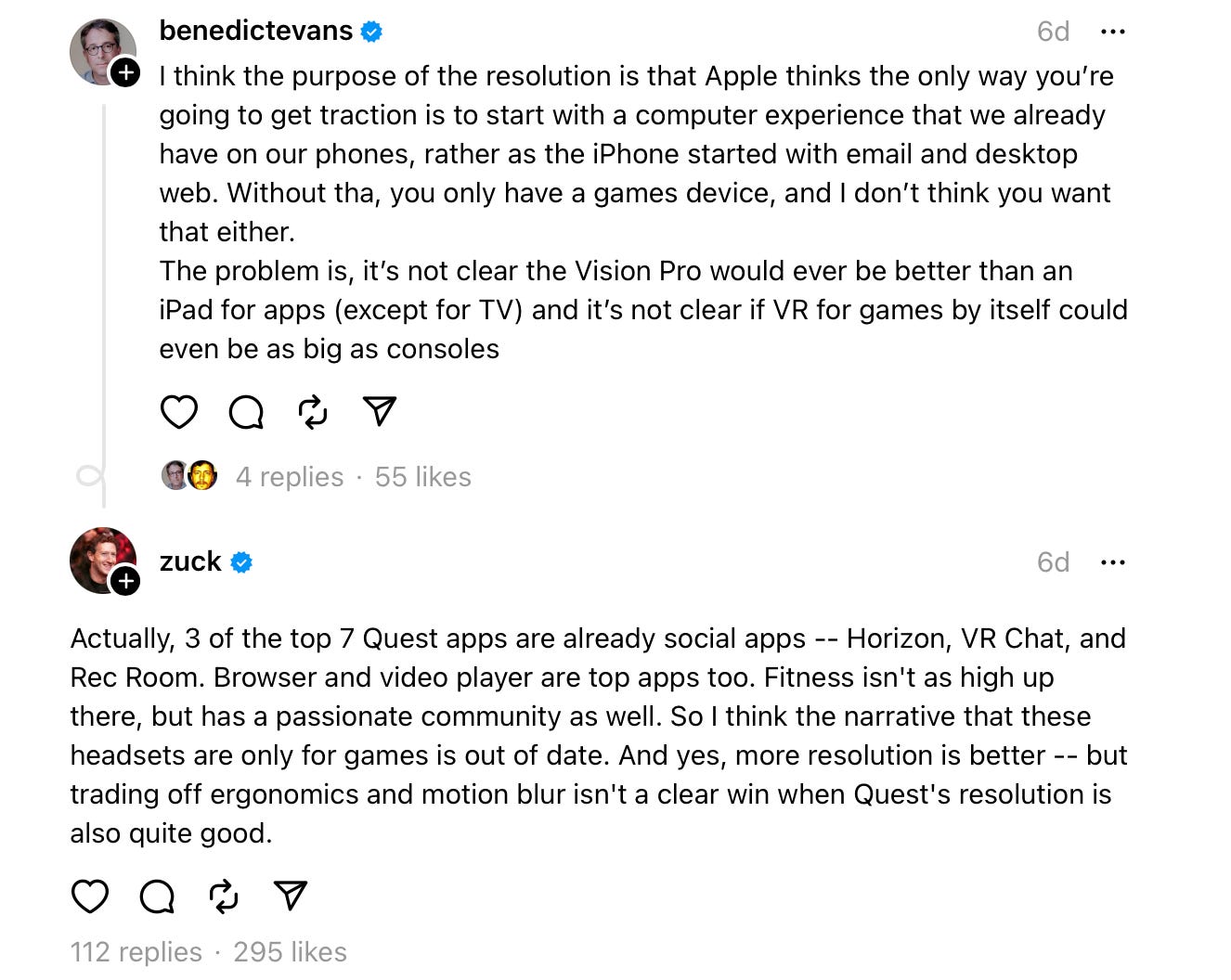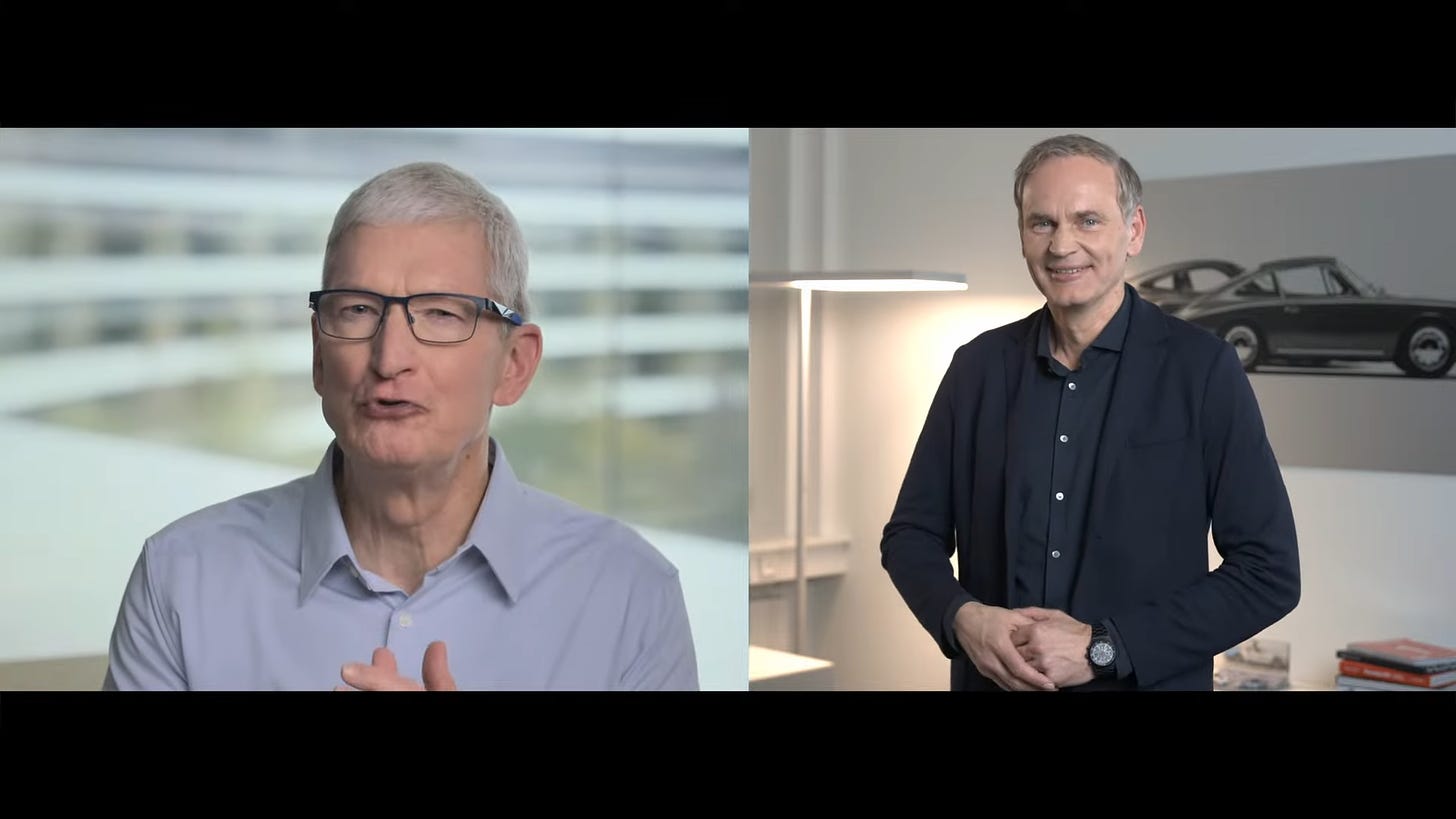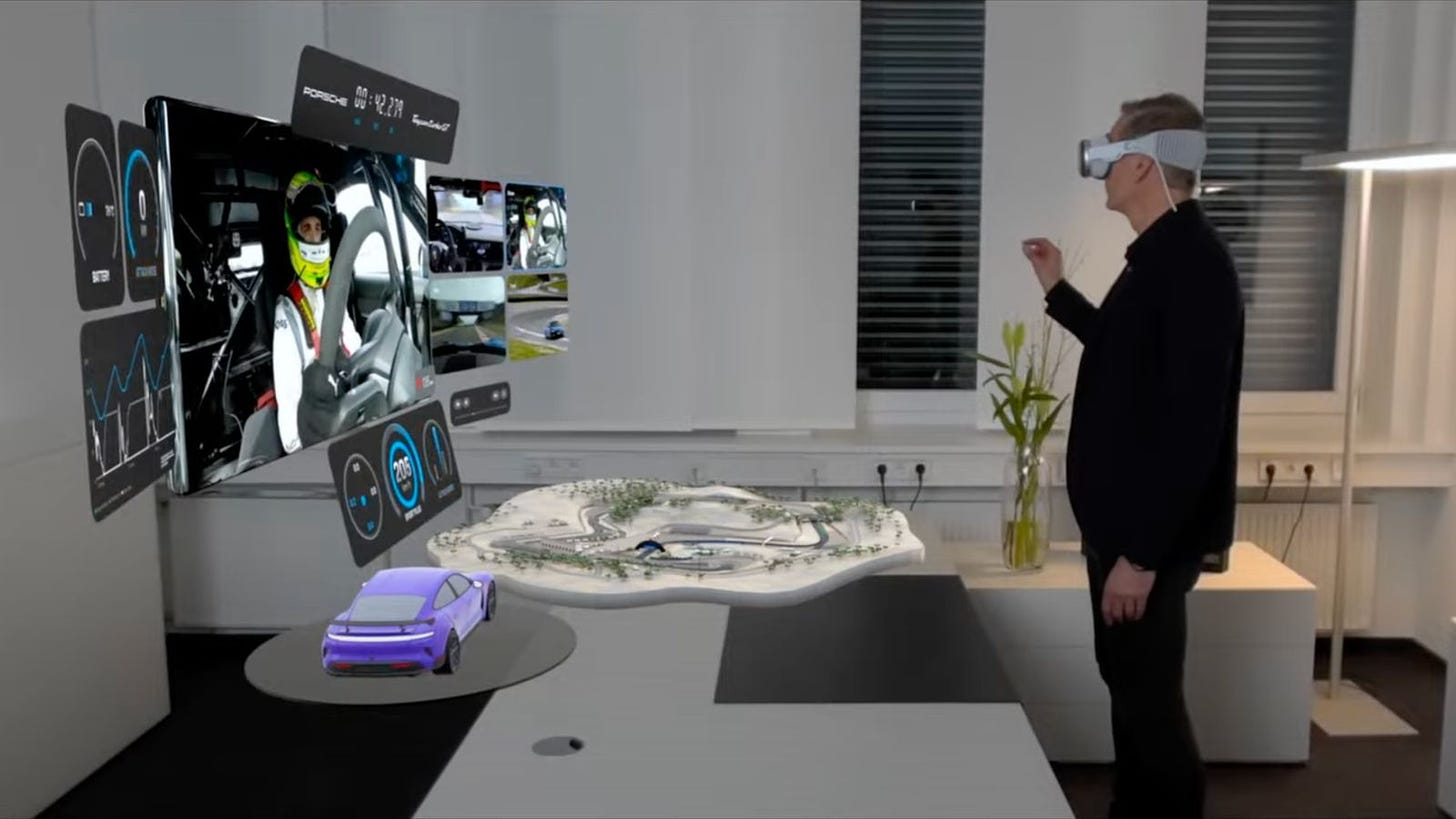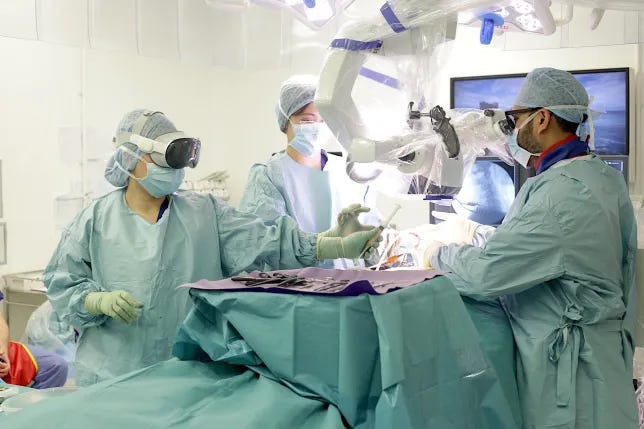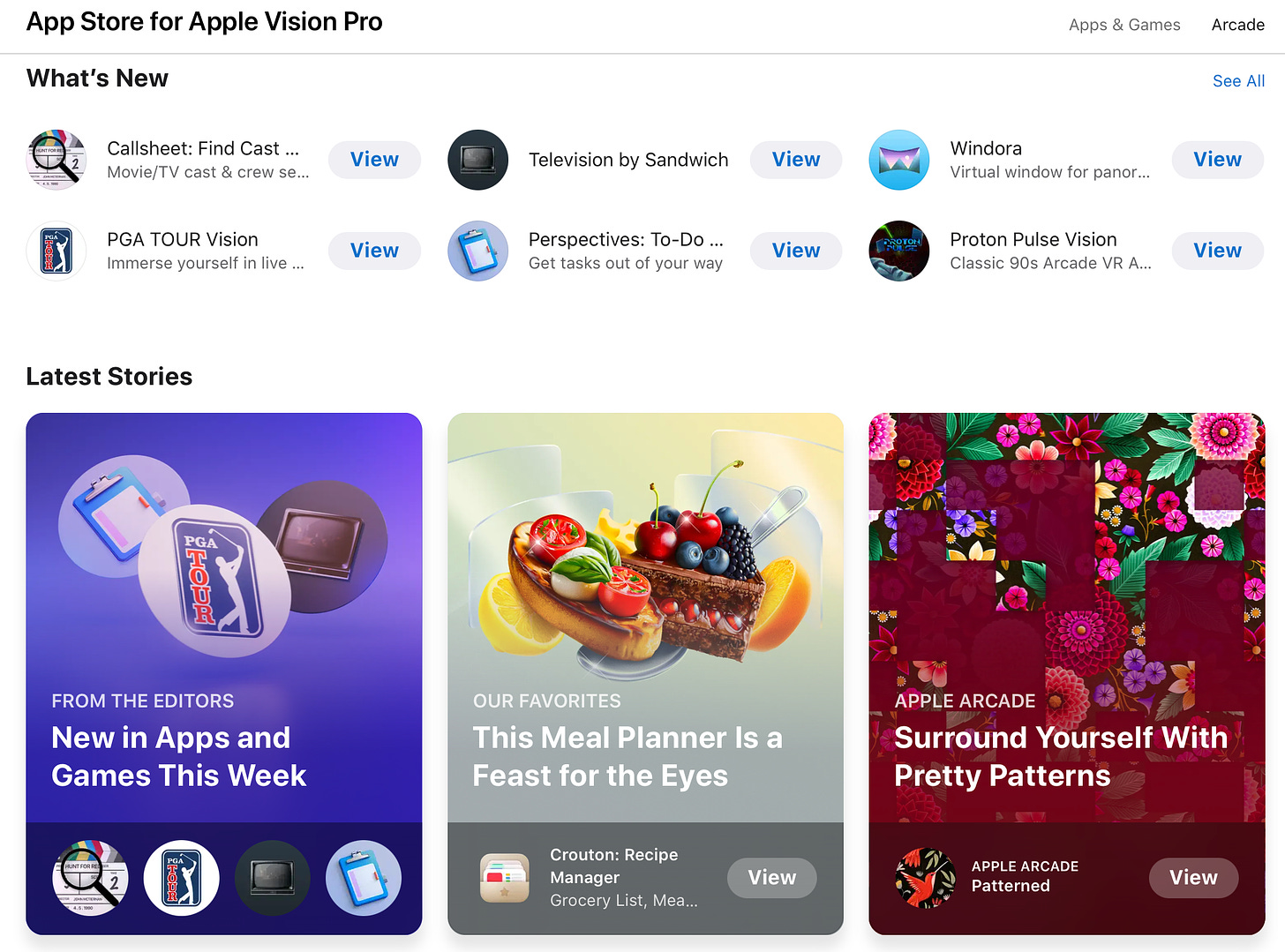Last Week in AVP #7: More Reviews by Former Head of Oculus, New York Times, Apple Vision Pro - The Missing FAQ, Zuck Doubles Down and More!
In this week’s newsletter I am sharing a new section that I have been working on for some time. Apple Vision Pro - The Missing FAQ. It’s something I hope to expand over time and maintain.
This week I am starting with a section that I get asked most often. How to use the Apple Vision Pro outside of US. The FAQ is free, with no ads. It can be found here. If you have a topic that you would like me to research and document on, please leave a comment to let me know.
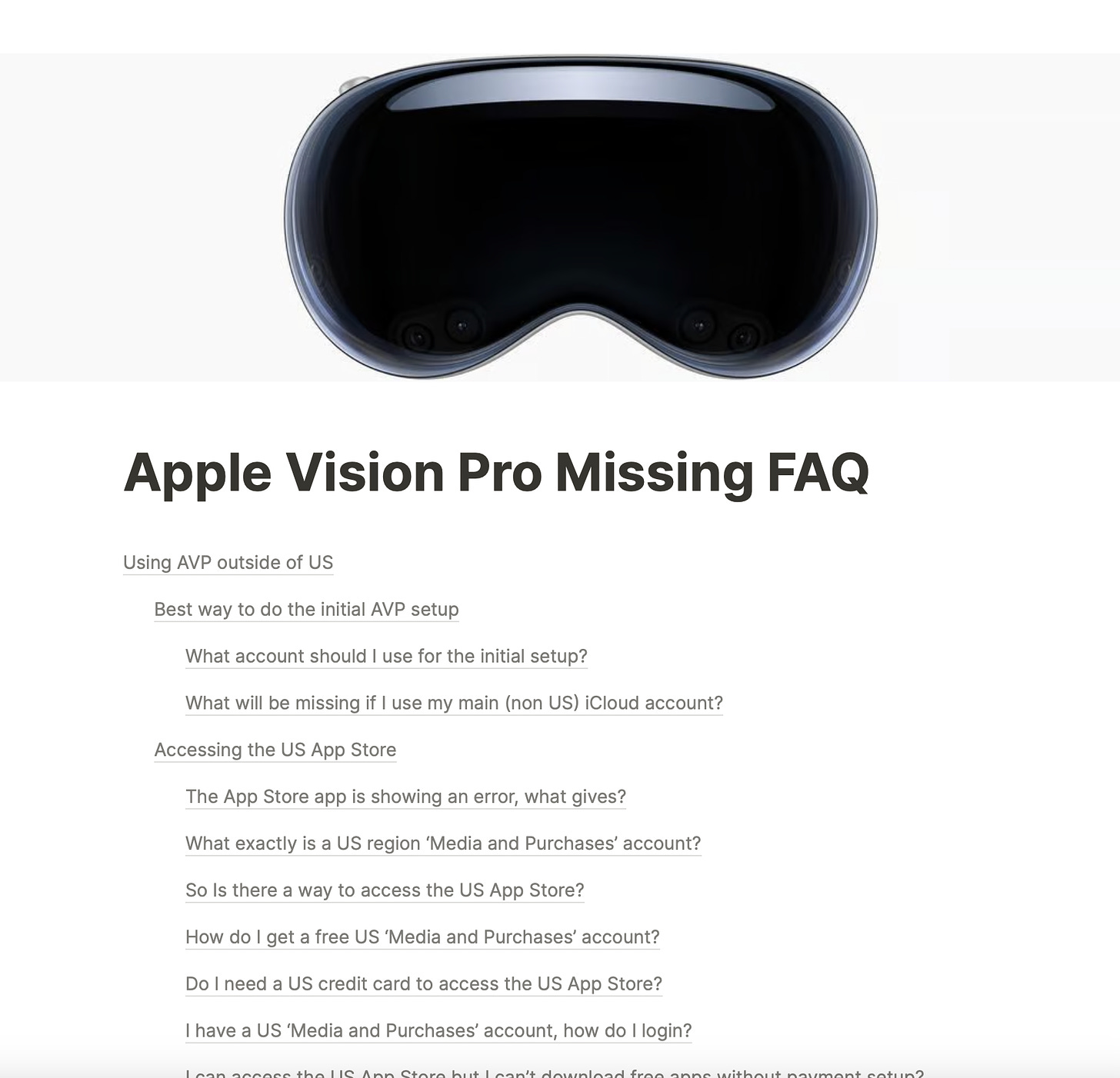
Now, onto this week’s updates!
More Impressions and 1-Month Reviews
Vision Pro is an over-engineered “devkit” by Hugo Barra (former Head of Oculus at Meta)
Coming in hot this week, we have a long review piece by Hugo Barra (former Head of Oculus at Meta). I did not have time to break it down bit by bit (I will by next week). But long time reader will know, nothing stirs me up more than a miscategorization of devkits (especially when I am a developer).
I’ve outlined this in details before but simply put, here’s my definition.
A devkit is a technical toolkit engineered for developers with capabilities specialized for application development that are ill-suited to meet the needs or expectations of the general public.
And by that definition, Apple Vision Pro has proven itself way way beyond a dev kit. 2 weeks ago I shared reports of AVP return-rate at under 1% aligned with other Apple product lines. By all accounts, the average customer is extremely satisfied with the purchase.
Let’s be clear here. A 1st gen product can be a great development platform and a great end user product at the same time. While other companies can opt for a devkit-only strategy. They are equally valid approaches. Hugo himself experienced this as he explained later in the same blog post:
When I joined Facebook to lead the Oculus team in 2017 after the acquisition, one of the many battles I found myself in the middle of almost immediately was the “devkit war”. The Oculus team’s DK1 and DK2 legacy was so strong that it was not uncommon to hear arguments in product meetings pushing for us to launch VR headsets still in prototype stage as “devkits” to end users.
However, this is just plainly not how Apple operates. Apple only operates one way - they ship when the product can deliver delights, and not a day before that. Which is why I think this distinction between a product and a devkit is so important. And is most often misunderstood by people outside the Apple ecosystem. For Apple, a product launch is deliberate. For every yes, there were a thousand no’s.
I will have more in-depth commentaries on the full blog next week. I do find some of his observations interesting and reasonable while other claims a bit baffling
Vision Pro is meticulously over-engineered
Lack of exciting AR apps at launch paints the product into an empty corner
Vision Pro’s positioning as a productivity & movie watching “big screen” is dull & unimaginative
Watching movies in Vision Pro is great at first but most people will stop doing it after the initial novelty excitement wears off
…. and so on.
Apple Vision Pro One Month Later with Joanna Stern
This week’s conversation from the New York Times - Hard Fork is a bit of a casual fun background listen.
"…so if you had to assign an overall grade to the Apple Vision Pro in your month of testing it what would you give it?
Do I get to break out certain things? Like travel is an A. Um watching Love is Blind, A, because I don't have to watch it...Working D. FaceTiming F. Not a big fan of the personas it's just just like this not it's useless it's just like nobody's taking me seriously and I haven't tested the beta which is supposed to make some improvements but it you as you mentioned you call people and they are laughing"
Overall grading from Joanna stern is
Travel - A
Watching TV independently from spouse - A
Working - D
Facetime - F
This video commentary feels like it’s more about tech enthusiasts swapping stories over coffee than delving into the nitty-gritty of analysis. And that’s totally fine—there’s a charm in hearing hosts riff from their own experiences. However, we are now well into the second month post launch and future-looking platform analysis is still quite rare.
For example, later in the show, the host concludes:
“…end of the day I feel like what I'm hearing both of you say is if you were
inclined to just ignore this thing for now you can absolutely just ignore it is
that is that a fair assessment?
“Sure. Fair”
For a show with a tagline - Hard Fork is a weekly look into the future that's already here - I think the hosts very much did not look into the future and missed the big picture here.
In the startup world, one common metric for evaluating a new product is the Net Promoter Score (NPS). In simple terms, it is a way of quantifying user satisfaction of an early product by surveying their willingness to recommend the product. It’s obviously hard to get his data for AVP. But a good proxy for that is engagement. In other words, how often are users using their devices and how does that trend over time?
Interestingly enough, Casey hits on this exact point later in the show:
"…but Casey you've done a demo if I'm gonna interview you now, you've done a demo. You feel any yearning to get one of these and do the week test? I do feel a twinge and I do think a week test might actually be the most fun for me … I kept thinking about my experience using the meta headsets which was I would use them for a month and I would put them in a drawer and I would never get them back out. And I just thought I'm not willing to spend almost $4,000 to have that experience and I still think that is the case.
And I think this is where Quest is drastically different from AVP. Engagement with Meta Quest has always been very poor. Reported by Verge:
Meanwhile, he acknowledged that the current Quest is struggling to keep new users engaged. “Right now, we’re on our third year of Quest 2,” he told employees. “And sadly, the newer cohorts that are coming in, the people who bought it this last Christmas, they’re just not as into it” or engaged as “the ones who bought it early.”
— Mark Rabkin, Meta’s VP of VR
Retention has been rumoured to be as low as 10%. Or otherwise rumoured at 75x lower than other platforms of the same scale at 20 million units (Xbox Series X for example).
On the flip side, as a visionOS developer I am observing engagement off the charts with AVP. I am seeing almost daily activity from my app with AVP owners. I would not be surprised if MAU (monthly active users) of AVP is north of 90%. That’s an order of magnitude better than the Quest platform.
Granted, we're currently in the honeymoon period. Only time will tell how AVP holds up over the next three months. I'll report back with more comprehensive data from my own app. Anecdotally speaking, few of my friends who purchased Meta Quests continue to use their devices. Predicting the future is challenging, but to those that are paying attention, it's clear that AVP and Meta Quest are not on the same trajectories.
Zuckerberg Doubles Down on Quest Claims (on Threads)
Here Zuck doubles down on his platform and is confident that his set of tradeoffs is the right one (low price, low quality, maximum accessibilities).
I think these statements from Zuck is quite misleading. I don’t think there are many who put on their Quests specifically to browse, or listen to music. I mean sure, if you have already decided to engage in a VR sessions then those apps can be useful. But Quest on its own is not a destination for general computing (at least not yet) for most users.
Apple Vision Pro Around the Web
Smart glasses are the future, but who will get there first?
This is a beautiful piece by Becca@Verge. It covers the long history of VR glasses and where the industry is heading. And I’ve covered before why optical glasses will not be a replacement of passthrough headsets, instead they will coexists.
But she makes a keen observation that I completely agree with:
…think about a computing system like the most intelligent computing system that we've ever had sitting on the bridge of your nose. That opens up a treasure trove of privacy concerns. So, ultimately, the winner of the smart glasses race is likely to be the company that we all trust the most.
Reimagined retail experience source
Spatial Tuning: tune your instrument with AVP (source)
Tim Cook appeared in Porsche's video announcement for the Taycan Turbo GT electric performance car.
How to use your Mac with Apple Vision Pro
Apple Vision Pro unlocks new opportunities for health app developers (source)
AVP for architects and DIY builders
Apple’s Vision Pro used during an operation in a UK first (source)
How to play Nintendo Switch on Apple Vision Pro
Browse Vision Pro Apps on the Web (source)
That’s all for now, feel free to leave me any feedback and discussions! 🙏
Until next week 👋

